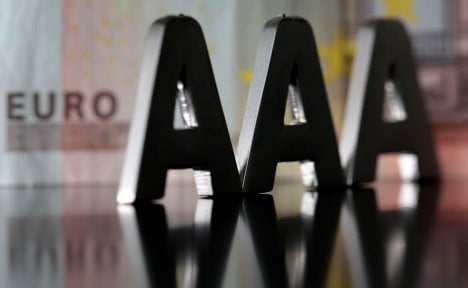“The affirmation reflects Germany’s longstanding credit strengths and robust economic performance over the past two years,” Fitch said in a statement.
“Against the background of fragile global recovery and the intensification of the eurozone crisis, Germany has recorded strong GDP (gross domestic product) growth and a declining trend in unemployment, partly as a result of previous structural reforms.”
Fitch analyst Gergely Kiss noted that Germany was the only major advanced economy which had lower unemployment rate in the first half of 2012 than it had in 2007.
German GDP had grown by a cumulative 5.8 percent since the beginning of 2010, compared to 2.3 percent for the eurozone.
Monetary conditions set for the entire eurozone by the European Central Bank were “accommodative for Germany given the strong cyclical position of its economy. As a consequence of safe-haven capital inflows, yields are also at extremely low levels,” Kiss said.
Nevertheless, Germany faces risks, the analyst warned. “A significantly deeper recession of its large eurozone trading partners could also push Germany into recession with negative repercussions for the fiscal stance as well,” he wrote.
Furthermore, additional sizeable contributions to eurozone bail-out funds “could push German debt level above 90 percent of GDP, close to the upper limit Fitch generally considers consistent with a ‘AAA’ rating.
Materialisation of these risks would put downward pressure on the rating,” Kiss said.
At the end of July, another rating agency, Moody’s, took the first step toward stripping Germany of its coveted AAA credit rating and cutting the outlook for Europe’s largest and most pivotal economy to “negative.”
AFP/jcw



 Please whitelist us to continue reading.
Please whitelist us to continue reading.
Member comments